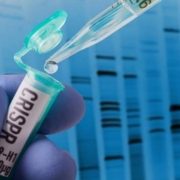Rice University researchers in Houston used the foundation of CRISPR/Cas9 technology to develop “drive-and-process” arrays, or DAP for short. The name may be simple, but the technology is complex and could be as groundbreaking as its predecessor. DAP is a mechanism that enables the editing of multiple DNA sites – rather than one at a time – to comprehensively reverse polygenic diseases resulting from multiple genetic predispositions.
Bayer on January 10 struck a partnership deal with Mammoth Biosciences to develop therapeutic tools based on CRISPR/CAS9 gene editing as the German drug maker seeks to widen the company’s cell and gene therapy development efforts.
Brisbane, California-based Sangamo Therapeutics announced that Sanofi US was returning rights to SAR445136 as the Paris-based company shifts its approach from personalized cell therapies to allogeneic off-the-shelf genomic approaches.
A World Health Organization (WHO) committee said on July 12 that human genome editing technologies to treat serious disease should be shared more generously, to allow poorer nations to benefit from the highly dynamic scientific field.
From Isolation to Anticipation: How technology continues to improve the lives of rare disease families
Biotech, CAR-T Therapy, CRISPR/Cas9, DNA sequencer, Extra Features, Genetic Conditions, Genome Sequencing, Issue Archives, June 2019, Med Ad News, Patients, Physicians, Rare Diseases, RNA Interference (RNAi), Social Networks, Technology, Whole Genome Sequencing (WGS)Working in the rare disease space has never been more rewarding than it is today. Technology is turning what was once thought to be impossible into actual, tangible realities for physicians, patients, and families. There are many exciting advancements happening now – in real time – and even more on the horizon that demand our attention and advocacy to help bring them to light.
Durham, N.C.-based Precision BioSciences set the company’s initial public offering price at $16 per share, raising $126.4 million.
Intellia Therapeutics will host an educational briefing webinar on interference proceedings relating to CRISPR/Cas9 genome editing technology patents.
Caribou Biosciences Inc. announced the Nature Methods publication describing SITE-Seq, a new method for comprehensively mapping CRISPR-Cas9 cleavage sites across the genome of any organism. When compared against other off-target analysis techniques, SITE-Seq detected potential off-target cleavage sites with a higher degree of resolution.





